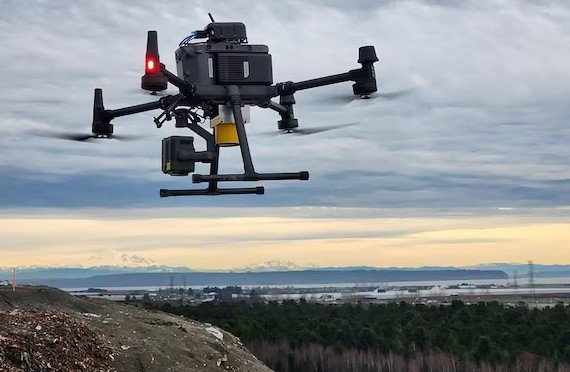Police tech leader makes bold push into aerial surveillance with latest U.S. acquisition
Ottawa-based public safety software company Versaterm has snapped up a Texas drone technology firm in a deal worth over $100 million, marking its biggest acquisition to date and a strong bet on the future of aerial surveillance in law enforcement.
The unnamed Austin-based company builds specialized drone systems used by U.S. police and emergency services. The acquisition gives Versaterm a new line of tools for real-time incident response, from high-speed chases to wildfire monitoring.
Why Drones? Why Now?
Drones are no longer just flashy gadgets for hobbyists or Hollywood film crews.
In public safety, they’ve become workhorses. Think missing persons searches, accident reconstruction, disaster response, or keeping an eye on large-scale protests.
Versaterm has long focused on behind-the-scenes tech—CAD systems, dispatch tools, and record-keeping platforms for law enforcement. This move adds eyes in the sky.
One industry insider called the deal “a logical next step” for a company looking to own more of the incident lifecycle—from call to closure.
Versaterm CEO Warren Loomis said the drone firm’s “cutting-edge aerial platform” will be integrated into Versaterm’s suite of solutions, giving clients a more comprehensive view of critical situations.

From Ottawa to Austin, With Vision
The Canadian company has been on a steady expansion spree, mostly through acquisitions across the U.S.
In the last three years, Versaterm has:
-
Acquired five U.S. software firms focused on police and fire services
-
Opened a Seattle-area hub to support growth in the Pacific Northwest
-
Grown its customer base to over 80 public safety agencies across North America
But this drone deal is different. It’s not just about software anymore. It’s about hardware, flight tech, and direct response capabilities.
And with the Austin-based team staying intact, the Canadian company gains boots on the ground in the U.S. innovation belt.
A Growing Market for Eyes in the Sky
The global drone market for public safety is heating up—and fast.
According to a 2024 study by MarketsandMarkets, the drone services market for emergency and security use is projected to reach $6.8 billion by 2028, growing at nearly 13% annually.
Here’s why that matters:
| Metric | Value |
|---|---|
| 2024 Market Size (Public Safety Drones) | $3.2 Billion |
| Projected 2028 Size | $6.8 Billion |
| Annual Growth Rate | 12.7% CAGR |
| Top Markets | U.S., Canada, EU, Middle East |
Police departments from LA to Toronto are investing in drone fleets to reduce response times and cover areas ground patrols can’t reach. Versaterm’s acquisition positions it squarely in the middle of this demand surge.
Versaterm Isn’t Alone—But It’s Early
While larger players like Motorola and Axon are also sniffing around drone partnerships, Versaterm may have struck first.
That gives it a rare advantage—especially in municipal contracts, where public safety agencies prefer single vendors that can bundle software and hardware together.
Versaterm now offers:
-
CAD and records management
-
AI dispatch tools
-
Jail management systems
-
Real-time drone surveillance
That’s an unusually broad footprint for a mid-sized Canadian tech firm.
It’s also a defensible one, thanks to the often sticky, long-term nature of public sector software contracts.
Privacy Fears, but Practical Benefits
Of course, drones don’t fly into public use without pushback.
Privacy groups have warned of “creeping surveillance creep,” especially if aerial systems are deployed without clear rules or transparency.
But police departments argue the tech helps de-escalate situations before they spiral.
“Being able to see a suspect from 300 feet up is a lot safer than sending an officer blind into a backyard,” said a former Houston PD official familiar with drone ops.
Versaterm says privacy protocols will be built into its drone platform, including flight path logs, usage audits, and integration with body camera policies already in place.
Still, that balance between utility and civil liberty will likely be tested as deployment expands.






